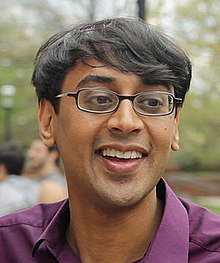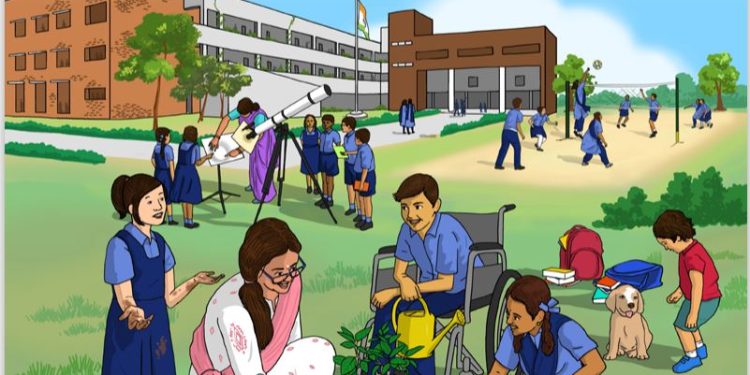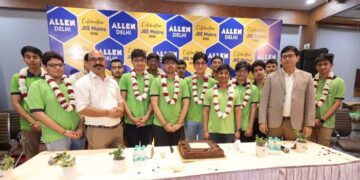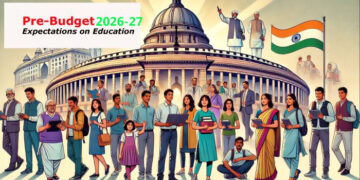By Autar Nehru
On August 23, 2023, with the release of National Curriculum Framework for School Education (NCF-SE), India began a new progression to ‘decolonize’ its school education system and root it in Indian Knowledge Systems—both ancient and modern by assemblage of informal and traditional knowledge base while embracing interdisciplinary inquiry-based schooling. Also, the indigenous, native and mother tongue languages get a new lease of life as instructions in mother tongue and multilingualism are integrated in reforms under this framework.
NCF-SE, a cornerstone of the National Education Policy (NEP) 2020, in many ways, is also an achievement of sorts for the Modi 2.0 Government, which for the past eight years has been knotted in the policy formulation on education soon after coming to power in 2014. While the Congress government in Karnataka government has thrown a spanner in the ‘national’ rollout of the new curricular structure for school education based on this new NCF by deciding to not implement NEP, the fact remains, this is brilliant document prepared after extensive research, feedback and in context of challenges faced by country’s school education ecosystem for many years now.
The final NCF-SE, in contrast to its draft released on April 6 (for public consultation and feedback) criticized for being unnecessarily detailed and voluminous, appears to be well organized and easy to follow. This NCF also integrated the foundational stage NCF and therefore the NCF-SE is a complete document for school education from age 3 to 18 years. Over 1,500 specific and detailed suggestions from over a 100 institutions and educators, consultations with Boards of School Education and with Higher Education Institutions, have gone into polishing the draft according to the information contained in the NCF-SE. NCF-SE is work of 4000 experts from state focus groups, 600 position papers on 25 themes, brainstorming of more than 1550 DIETs and a consultative process involving teachers, parents, relevant government departments in the States, administrators, schools, NGOs working in education and allied areas, educationists and scholars from various fields, and other citizens of India over past two years.
“Since the explicit objective of this NCF-SE is to help improve the practice of education in the reality of our schools, it has attempted to be as relatable as possible to the practitioner — by the use of illustrations, by going into details, and other methods. It is this choice that has made this volume fairly lengthy,” says the document.
The NCF-SE is a clear departure from the past and therefore charters a new journey. The term ‘primary’ so intertwined with the school education so far is now buried as the new curricular structure divides education into four stages—Foundational, Preparatory, Middle and Secondary. While inclusion of early education for 3-6 years stays a prominent highlight of this new vision cum guiding document, mainstreaming art, sports and vocational education is the new high. Also, interdisciplinary education and localization have been given clear pathways to schooling. In right earnest, the work for writing (class 3-12) textbooks based on NCF-SE by the school academic apex body, NCERT, has also begun and committees notified. Expectedly, from next academic year, the implementation of the framework will commence.
Now, let’s take a cursory analysis of what the NCF-SE is all about.
How is it different from the current framework?
Hold your breath, NCFSE is not going to be disruptive in one go. Nothing much will change, but gradually from curriculum to pedagogical practices, academic processes, assessment to career aspirations, everything is set to transform in next 5-10 years. The central idea of this new framework hinges on changing mindset and producing a futuristic human capital for the world.
The a few nostalgic changes will involve not hearing primary, upper primary and 10+2 anymore as under the new curricular structure, these will become Foundational, Preparatory, Middle and Secondary. However, in terms of changes at classroom level or curriculum, not much is going to be new. Yes, the textbooks will get refreshing and some experiential and teachers will need to work up.
Three-language system is even currently in practice in classes 6-8 and it will just get emphasized. However, from class 9 to 12, there is a change. As against the current system of English and Hindi/other language in class 9 and 10, there are going to be three languages, that is, one more. For classes 11 and 12, currently having English as the core language subject, will have to study one more language.
Where is the most change going to be felt?
The Foundational stage till class 2 is in any case evolving. Also, as it needs policy decisions and resources for expansion and other requirements, this segment is going to see largely an organic growth without much adjustment.
Preparatory stage will function smoothly and there will be changes in content by way of textbooks as discussed above. However, the middle stage (class 6-8) will experience a welcome change. Vocational education concepts and familiarization projects will add on in this stage. Also, the third language, which as of now is taken leniently may become a pressure point as it will become a full subject.
Secondary stage, which has been divided into two phases, classes 9-10 and classes 11-12, are going to feel the maximum changes. For classes 9-10, eight curricular areas—Languages, Mathematics and Computational Thinking, Science, Social Science, Art Education, Interdisciplinary Areas, Physical Education & wellbeing, Vocational education—become compulsory for students. In comparison to present combinations, the actual change is addition of art, physical education and vocational education.
Assessment
Again, not many changes. The board examinations for classes 10 and 12 remain. There is a recommendation of holding them twice a year with the objective of moving toward semester system in classes 11 and 12 and ultimately to providing an option for on demand examination.
Art education, physical education, interdisciplinary education and vocational education, which will become ‘marks’ aspirational in secondary stage and have direct bearing on qualifying board exams are patterned on ‘internal assessment or local assessment’ and therefore, will be controversial till the system settles.
Vocational Education
There were a lot of apprehensions on integrating vocational education particularly in lower stages, but NCFSE seems to have addressed them. The concepts to formalization and actual hand on skilling is a welcome gradual process. Much of this can be handled by trained teachers though at secondary stages, ATL like model or ITI hubs will need to make it purposeful and real. So, this space is on watch list as this will be a new experiment on mass scale.
Interdisciplinary Education
Some curious, pressing and fascinating areas are better learnt through project-based pedagogy that involves inputs and ideas from diverse subject areas. These are essentially research-oriented project works and already in practice in many schools. But under the NCFSE, this activity will get formalized and exert pressure on time and management of resources. An interesting watch again.
Where are the teachers?
This NCF is designed with the teacher as the primary focus, but where are the teachers. An overwhelming addition of native languages, art education, physical education and vocational education will be huge challenge and a nightmare for implementers. The challenges have been recognized by the framework as well.
NCF-SE, itself spells out how difficult the scenario is. While the economic stimulus and mandatory teaching of these subjects will create a supply of these teachers in coming years, the formula suggested by NCF I that until this is done, schools could collaborate with respective organisations and the local communities to fulfil the needs of the curriculum.
Mathematics as a special area of interest
 Prof Manjul Bhargava, an internationally recognized mathematician and Professor of Mathematics at Princeton University has been part and parcel of this NCF as the chairman of the Mandate Group for National Curriculum Frameworks. Therefore, expect his imprint on Mathematics education plan. Mathematics has an extremely rich history in India spanning thousands of years from the ancient and Vedic times to the modern era and through implementation of new NCF, there is an opportunity for the country not only to dismantle Math Phobia but gain some past glory of prowess and power in mathematics.
Prof Manjul Bhargava, an internationally recognized mathematician and Professor of Mathematics at Princeton University has been part and parcel of this NCF as the chairman of the Mandate Group for National Curriculum Frameworks. Therefore, expect his imprint on Mathematics education plan. Mathematics has an extremely rich history in India spanning thousands of years from the ancient and Vedic times to the modern era and through implementation of new NCF, there is an opportunity for the country not only to dismantle Math Phobia but gain some past glory of prowess and power in mathematics.
Quoting from NCF-SE, “ Mathematics learning has traditionally been more ‘robotic’ and ‘procedural’ rather than creative and aesthetic. This is a misrepresentation of the nature of Mathematics and must be addressed in the school curriculum…Currently, a large proportion of students in the early grades are not achieving Foundational Literacy and Numeracy. This makes it difficult for students to achieve any further higher learning in Mathematics and excludes them from effective economic and democratic participation…. Mathematics, including Computational Thinking, has never been more important globally, for students and for society, with the growing challenges with respect to artificial intelligence, machine learning, data science, climate modelling, infrastructure development, and the numerous other related scientific issues faced by India and all nations today. Quality education in mathematics and mathematical thinking will thus be indispensable for India’s future, and indeed for ensuring India’s leadership role in these critically important and emerging fields.
Challenge and Forward March
Education is in the concurrent subject and logically a state has more stake and say in its policy and programs. Central plans and laws are models. Being an important reform in the overall national developmental goals, NCF, will be a hot political commodity for BJP to sell. To counter its effect, opposition ruled states, may stall it and create their own version.
Then content under social sciences, in particular, history has been fought on ideological grounds for past many years by academicians and politicians alike. This conflict will again become a hurdle in knowledge horizons and keep the debate simmering.
However, saying goes ‘nothing succeeds like success.’ If, big states like UP or Maharashtra, are able to implement it with a degree of success, it will create a ripple effect and become a national movement in coming 5 years.
Lastly, economics have to do the trick. The addition of project work means more expenditure both schools and parents. This will also raise the scope for malpractices and the whole idea can become messy. So, grants under SSS and well-regulated PPPs may be part of education budgets. The roll out is anything but exciting to begin with.












